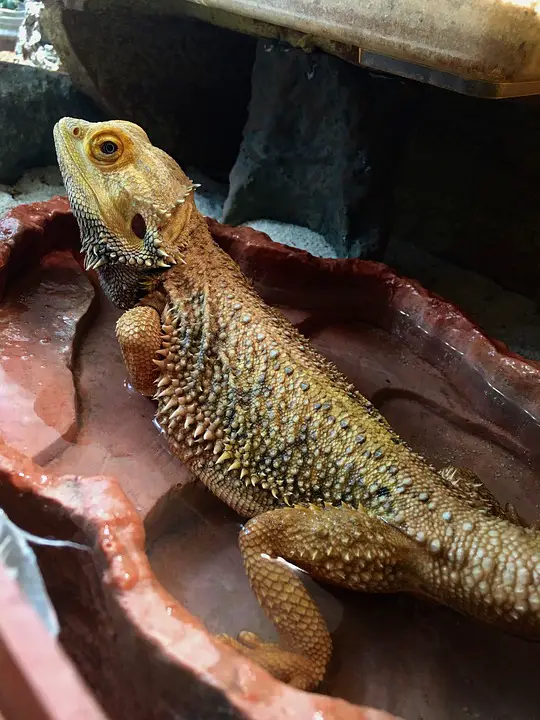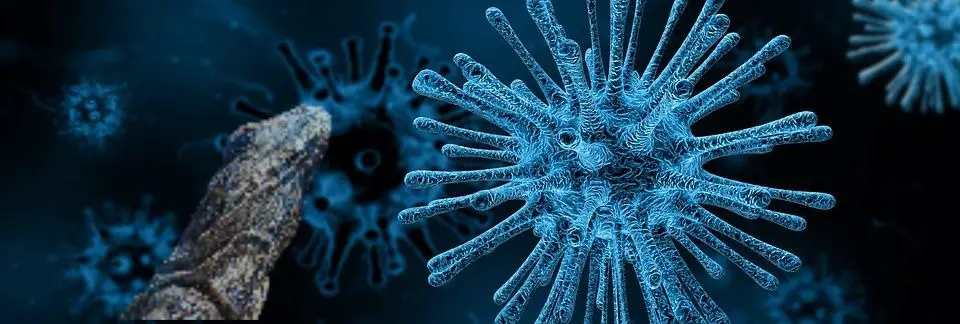Studies estimate that millions of households in the United States own at least one reptile or amphibian pets. Among the reptiles, geckos stand out as a favorite pet, and it’s only safe to know if your pet is killing you silently. The dreaded question is, do geckos carry diseases?
Most reptiles, if not all, carry Salmonella bacteria in their intestinal tract and tend to shed these bacteria in their feces. The Salmonella bacteria are harmless to the reptiles, but the same bacteria cause illness to humans when ingested or comes to contact.
It is, therefore, yes. Geckos belong to the reptile family and thus can transmit the Salmonella bacteria to humans.
In this article
Chances of getting Salmonella from reptiles
How do geckos carry diseases like Salmonella?
The spread of Salmonella bacteria can be either through direct or indirect contact with geckos. The geckos can spread Salmonella bacteria through their skin, droppings, cages, or even water where they swim.

If, after handling, petting, or attended to the cage your gecko for cleaning, you touch your mouth without thoroughly washing them, you can infect yourself with Salmonella.
It is, therefore, safe to assume that anything your gecko touches is possibly contaminated with Salmonella.
Who is most at risk for a severe illness?
From past studies, anyone can get infected and become sick from Salmonella bacteria. However, some people tend to be more likely than over to suffer full-blown Salmonellosis whose common symptoms include diarrhea, fever, and stomach cramps.

The following class of people tends to be more susceptible to suffer Salmonellosis;
- infants;
- children who are 5 years of age and younger;
- senior adults aged 65 years and older;
- people of all ages but with weakened immune systems. This group includes people with HIV/AIDS, organ transplant patients, and people receiving chemotherapy.
How to prevent Salmonella from spreading
- Children under the age of 5 should not be allowed to handle or touch geckos/reptiles/amphibians or anything the area where the reptiles live or roam. This prohibition includes water from containers or aquariums.
- After tending to or petting your pets, wash your hands thoroughly with soap and ward water immediately. Hand sanitizer will come in handy if soap and water are not readily available.
- Adults should always supervise young children during hand washing.
- Avoid touching your mouth before washing your hands while tending to your pets. You must not eat or drink around reptiles or amphibians.
- Never allow your reptile or amphibian pets to roam freely thoroughly the house or areas where food is prepared, served, or stored. These areas could include kitchens, pantries, and outdoor patios.
- It is advisable to keep reptiles and amphibians out of homes with children younger than 5 years, senior adults older than 65, or people with weakened immune systems.
- You should do the cleaning of reptiles/ amphibians habitats and their materials carefully outside of the home. Ensure you use disposable gloves and do not dispose of water in sinks used for food preparation or a source of drinking water.
- Don not bath or wash your reptile pets in your kitchen sink. It is therefore recommended you provide a dedicated bathtub for bathing your pets that should be thoroughly cleaned afterward with water and soap. Besides, be sure to clean any surfaces that have been in contact with your reptile or amphibian pets.

Other preventive measures include;
The use of surfaces that can be sanitized and rinsed using a registered disinfectant is advisable for added protection.
- If registered disinfectants are not available, we recommend using a chlorine bleach solution is recommended.
- Do not allow your reptile or amphibians in a bathtub or kiddie pool used by children.
- Any clothing your reptile pet might have touched must be washed and dried.
Conclusion
Petting of reptiles and amphibians needs some carefully analyzed/evaluated considerations. In-house family members’ interests should be your number one priority.
If your household has a child under 5 years, a senior of over 65 years old, and any immunity compromised individuals that include diabetic, HIV Positive, TB etc. you may need to avoid reptiles/amphibians for a pet.


Thanks for the advice these Geckos are too much in my house